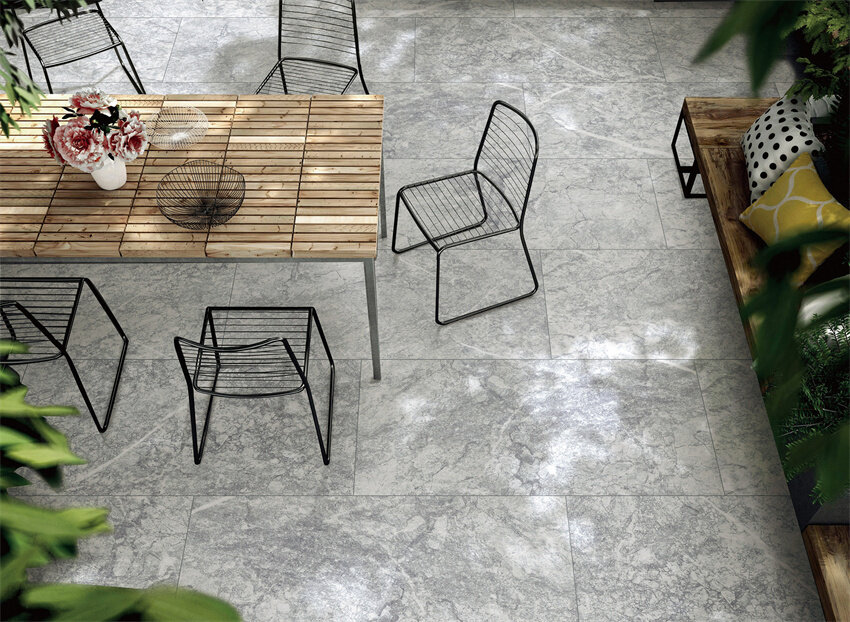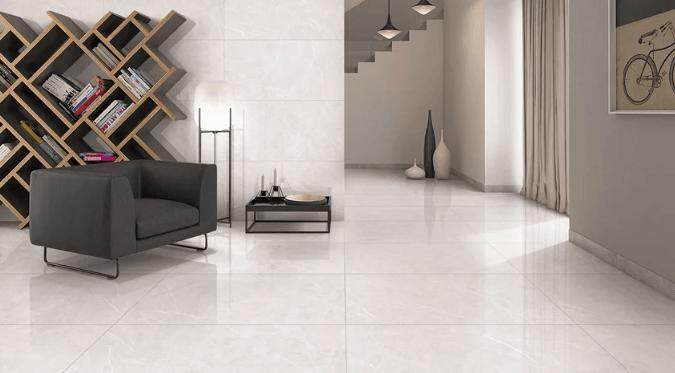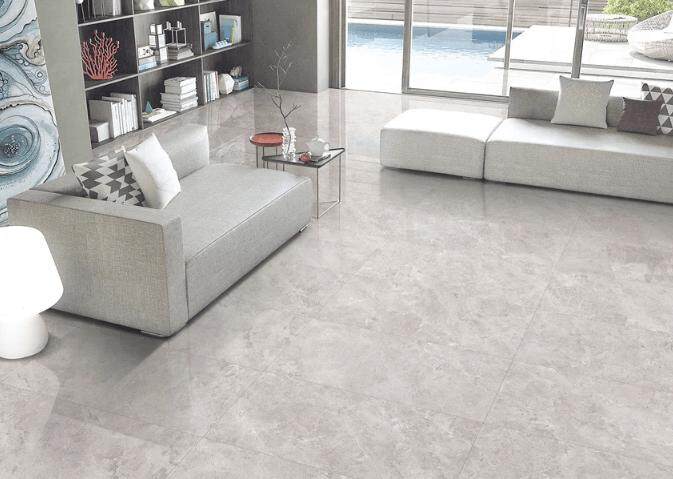
Choosing the right flooring material is a significant decision for homeowners and businesses alike. Among the numerous options available, polished porcelain flooring has gained popularity for its unique blend of aesthetics and functionality.
In this article, we will explore the pros and cons of polished porcelain flooring to help you make an informed decision when considering this elegant option for your space.
In this section, the author would list the main pros of the polished porcelain flooring.
One of the most significant advantages of polished porcelain flooring is its elegant and luxurious appearance. The high-gloss finish of polished porcelain tiles adds a touch of sophistication to any room.
This flooring option is available in various colors and patterns, allowing for versatile design choices to complement your interior decor.
Polished porcelain tiles are exceptionally durable and resistant to wear and tear. They can withstand heavy foot traffic and are highly resistant to scratches and stains, making them an ideal choice for high-traffic areas like kitchens, hallways, and commercial spaces. When properly maintained, polished porcelain flooring can last for decades.

Unlike natural stone or hardwood floors that require regular sealing and special cleaning products, polished porcelain flooring is relatively low-maintenance.
Routine sweeping and mopping are typically all that's needed to keep it looking pristine. This makes it an attractive option for busy households and commercial properties.
Polished porcelain tiles are impervious to water, making them suitable for bathrooms, kitchens, and other areas prone to moisture. The water resistance of these tiles prevents them from warping, swelling, or staining when exposed to water, making cleanup a breeze.
Polished porcelain flooring is hypoallergenic and non-porous, which means it does not harbor allergens, dust mites, or bacteria.
This makes it an excellent choice for individuals with allergies or respiratory issues, as well as for healthcare facilities and restaurants that prioritize hygiene.
The reflective surface of polished porcelain tiles can enhance natural lighting within a space, reducing the need for artificial lighting during the day. This not only contributes to energy savings but also creates a brighter and more inviting atmosphere.
Polished porcelain tiles come in various sizes, shapes, and colors, allowing for endless design possibilities. Whether you prefer a classic, contemporary, or minimalist aesthetic, you can find polished porcelain tiles to suit your style.
Polished porcelain flooring remains cool to the touch, making it an excellent choice for homes in hot climates. It can help maintain a comfortable indoor temperature during scorching summers.

Howerver, the polished porcelain flooring still has some drawback in the application.
While the hardness of polished porcelain is an advantage for durability, it can be a drawback in terms of comfort. These tiles are rigid and unforgiving, which can lead to discomfort when standing for extended periods.
Additionally, they tend to feel cold in cooler seasons, requiring the use of area rugs or underfloor heating systems in some cases.
The high-gloss surface of polished porcelain tiles can be slippery when wet. This can pose a safety hazard, especially in areas prone to spills or where children and the elderly may be at risk of slipping. To mitigate this issue, anti-slip coatings or rugs can be used.
The installation of polished porcelain flooring can be more complex and time-consuming compared to other flooring options. Achieving a perfectly level surface is crucial, and improper installation can result in an uneven appearance.
Polished porcelain flooring tends to be more expensive upfront than some other flooring materials, such as laminate or vinyl. However, its longevity and durability can offset the initial investment over time.
While polished porcelain flooring is generally easy to clean, maintaining its high-gloss finish can be challenging. Over time, the shine may diminish, requiring periodic professional polishing and sealing to restore its original luster.
The appearance of grout lines between polished porcelain tiles can be a matter of personal preference. Some individuals may find it appealing, while others may prefer the seamless look of larger tiles or other flooring materials.
When considering polished porcelain flooring for your space, carefully weigh these pros and cons to determine if it aligns with your design preferences and practical needs.
Ultimately, polished porcelain flooring is an excellent choice for areas where aesthetics and durability are paramount. With proper care and precautions, it can provide a long-lasting and stylish flooring solution that enhances the overall look and feel of your home or business.